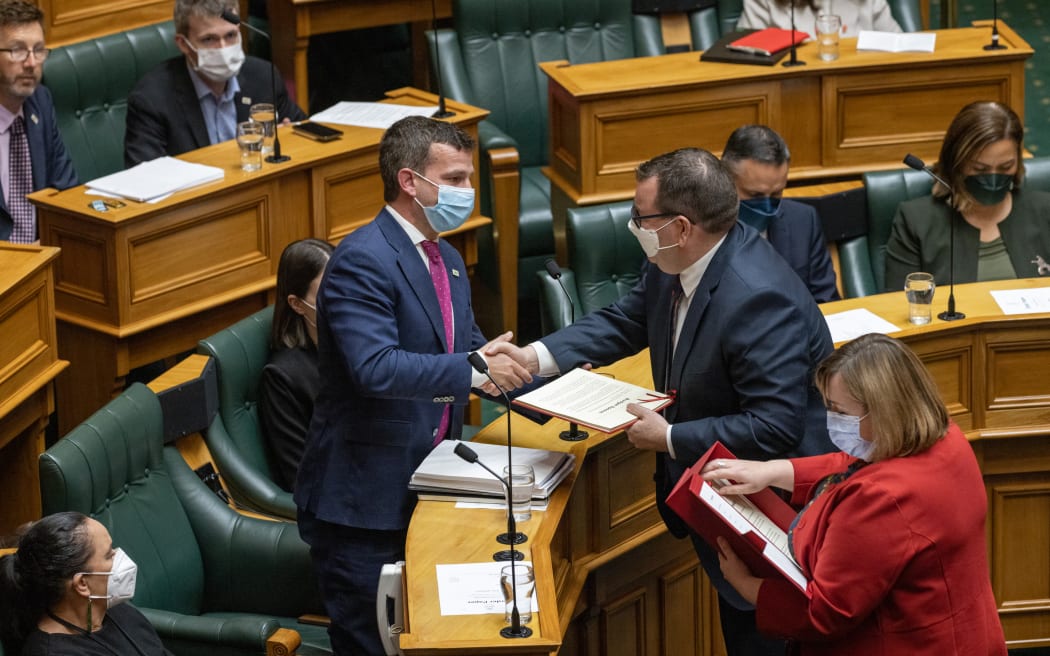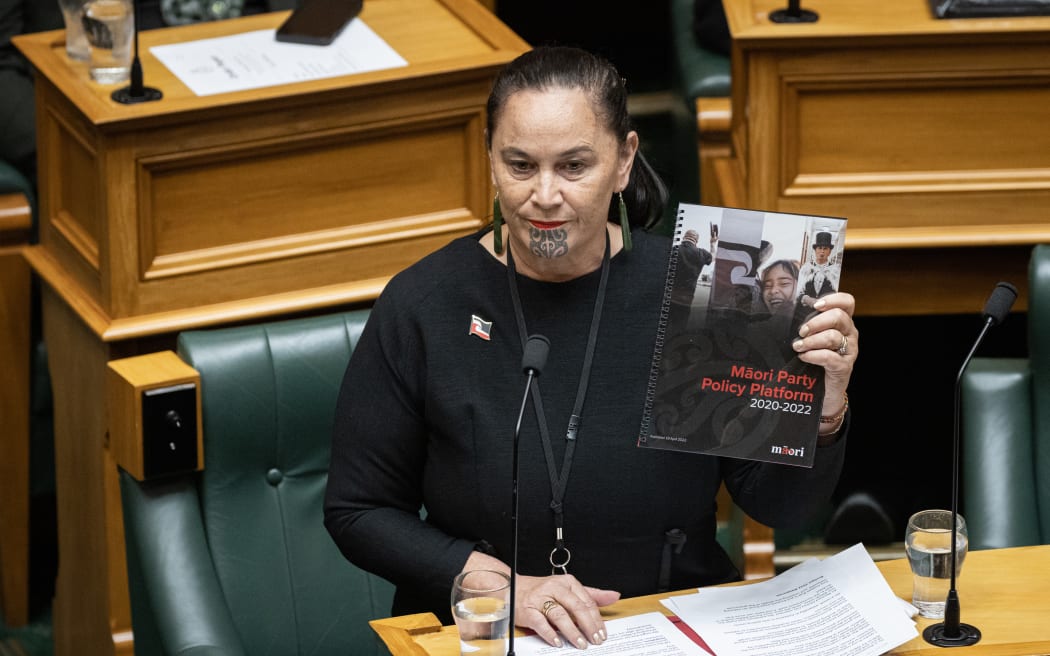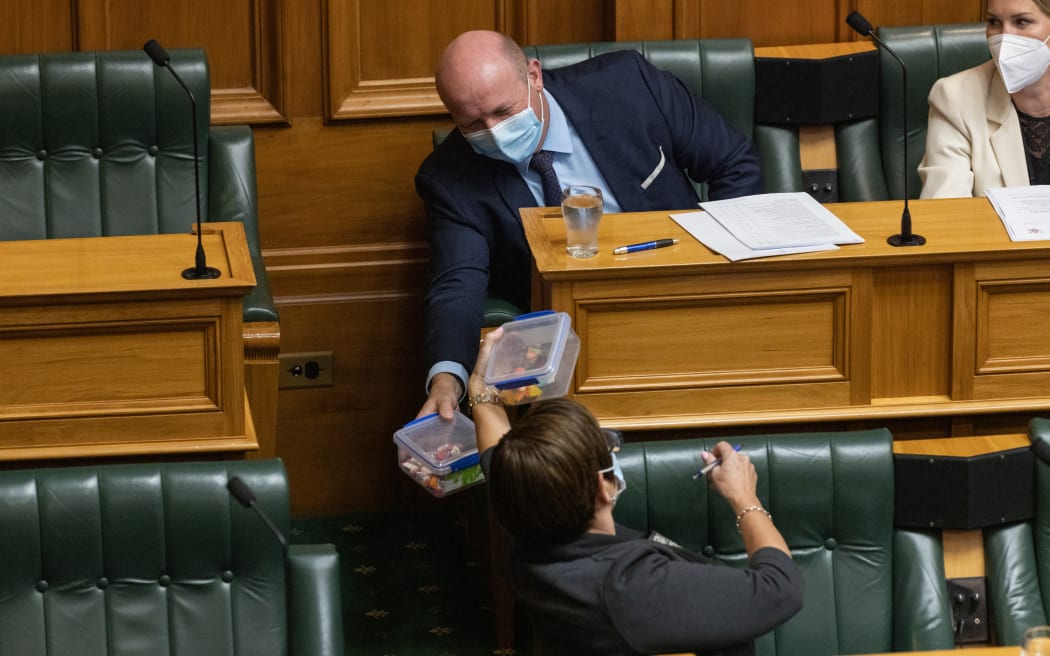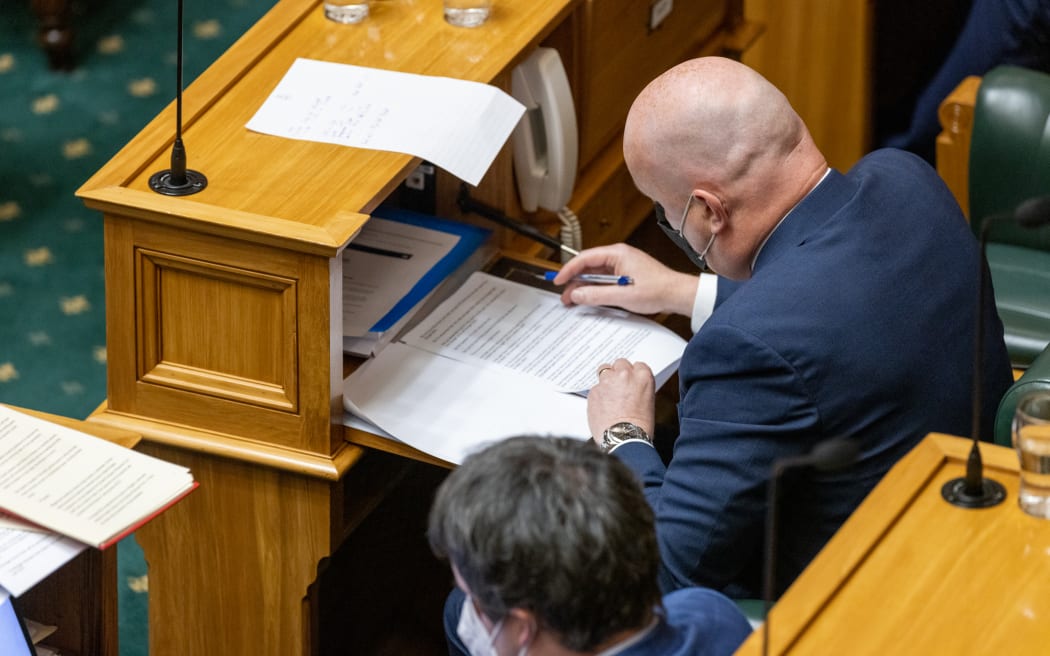Parliament polished off the initial budget debate this week. That may not sound difficult but the eight-hour long event is often spread languorously across a few weeks. Getting through it all in a couple of days is impressive.
Party leaders had an initial chance to laud or lament the plan on Budget Day - not an easy task as they mostly hadn’t had a chance to read it quite yet.
When they were done the debate was paused to deal with related legislation, and then a week of recess, which allowed some locally-oriented selling and slamming.
This week, when MPs returned to Parliament, they had had time to get more familiar with the budget and hone their arguments.

Photo:
It won't surprise you to know that Budget debates aren’t a carefully focussed discussion of the spending decisions and plans that lie behind a budget.
Achieving a greater level of detail is the point of the extensive Estimates Hearings that are held by ALL TWELVE specialist subject select committees. In fact they have already begun.
Budget debate speeches are mostly about politics and the MPs are largely talking past one another. This isn’t surprising or necessarily bad, it’s just that the parties have different objectives. So let’s have a quick look at some of those and how they play out.
Government: The Sell
For MPs from a governing party the debate is primarily an opportunity to highlight and seek attention for specific aspects of the budget.
In any budget there are hundreds of things that could be publicised and most of them remain mysteries to most of the public. Did you know, for example, that this budget has cash targeted at eating disorders, dental care for the poor, a new building at Parliament, sexual assault, fighting organised crime, a gun registry, or for broadcasting to the pacific?
Budgets are deep and wide, and usually poorly understood, so MPs try to find some attention for them however they can.
For MPs that are government ministers their speeches are often a chance to highlight funding decisions within their ambit - possibly even things they fought hard to get included in the final plan.
And for any governing party MP there will likely be things that relate to their own communities of interest or constituencies to focus on, or things in their own area of passion.
All that ‘selling’ is job number one.
The second major job for governing party MPs is to reiterate overarching government messages. This year those are things like current positive local economic statistics, global economic comparisons and various international economic pressure points (Ukraine, related energy pressures, Covid, supply chains etc).
As you might expect a majority party gets a lot of speaking time in a debate like this. More than half of it, so the thematic repetition can get a bit tiresome but most budgets are so huge and complex that there is usually something fresh to focus on if you look for it.

Te Te Pāti Māori co-leader Debbie Ngarewa-Packer presents her party’s policy document as an alternative to the budget during the Budget Debate. Photo: Phil Smith
Cross-benches: Take credit and raise the stakes
Two parties in Parliament (Green and Te Paati Maori) are neither entirely in government, nor in opposition. Such parties ‘on the cross-benches’ are in an enviable position in responding to budgets.
They tend to claim credit for the things they like about the budget whether credit is due or not. Te Paati Maori claim a fair bit of credit despite having no influence on policy at all.
They can go further in their promises (without the handbreak of having to follow through and pay for things), saying ‘we would have done so much more’. Both Green Party and Te Pāti Māori speakers did this.
And without the restraint of being fully inside the tent, they also get to rubbish whatever elements they don’t like.
This isn’t just contrariness, it’s a crucial opportunity to distinguish their own party brand from that of the Government.
Dr Pangloss would cry ‘it’s the best of all possible worlds’. Though presumably being the government is better.

National Party junior whip Maureen Pugh undertaking a traditional whip duty, keeping her party's MPs in the debating chamber well supplied with snacks during the long Budget Debate. Here she swaps lolly boxes with National MP David Bennett. Photo: Phil Smith
Guess what the opposition does?
For MPs from opposition parties (National and ACT) the focus is pretty obvious. Calling them opposition rather kills the suspense. But there are different approaches within an opposition message.
Obviously the main tack is to aggressively repudiate the budget and everything within it. This is done in various ways.
The widest approach is by repeating an agreed ‘opposition message’; usually a descriptive phrase or moniker that an opposition party wants to become the generally accepted public response to the budget announcement.
The fact that these monikers for a budget are generally agreed before oppositions have seen a budget doesn’t prevent them from being useful and sometimes very effective. But that timing requires they be broad. National decided to call this year’s budget the ‘backwards budget’.
The most meaningful opposition response is from within the policy responsibilities of specific MPs. Each opposition MP is given the task of finding ammunition (within their own specialist portfolio area), that can be used in the debate (and later in select committee).
The third general approach of opposition is to provide alternatives.
The ACT party made particular efforts this year at presenting an alternative spending plan with specifics, including lists of quite a few government organisations to be cut. They were even brave enough to include unpopular things like raising the age for superannuation.
The National Party has largely avoided being tied to any specific promises but have indicated a similar expenditure but with varied priorities (particularly regarding tax).
The final broad brush that opposition MPs use to paint governments is the universal fault card. Whatever is going badly is deemed to be within the ambit of and therefore is the fault of a current administration.
This is a long standing tradition and internationally true, which is why every opposition party in the world is currently blaming their local government for similarly high inflation and treating it as a local issue. That is equally true of left wing oppositions in the UK and Australia (until a week ago) or conservative oppositions in NZ, Canada and the US.
It works everywhere. Voters much prefer to blame real people over complex and unseen influences. Tip O’Neill was correct. All politics is local.

Christopher Luxon prepares his speech in the House on Budget Day while still listening to Grant Robertson budget announcement. Opposition MPs don’t get much advance notice of the budget. Photo: Phil Smith
Amending a budget
It is called the Budget Debate but it is actually the second reading of the Appropriation (2022/23 Estimates) Bill, which is the core legislative element of what we call the budget. The budget is legislation like anything else.
It gets enormous attention from MPs but despite that, budgets aren’t really up for amendment. These debates are a take-it-or-leave-it kind of thing. Kind of.
There is a single amendment proposed at the very beginning of the Budget Debate by the Leader of the Opposition.
Christopher Luxon’s amendment this year was: “to replace all words after "That" with "this House, and the people of New Zealand, have lost confidence in this Government, because this Budget takes them backwards. Households are going backwards. The books are going backwards. Outcomes are going backwards. The country is going backwards."
Yes, he managed to work his party theme in there.
The amendment motion was a no-confidence motion, so if the House agreed to it the Government would fall. Eventually on Wednesday this week they did vote. National and ACT voted for the no-confidence motion, Labour and Green voted against it. Te Pāti Māori appeared to abstain. So 42 to 75.
For the vote on the second reading of the budget Labour, Green and Maori voted for it and National and ACT voted against. So 77 to 42.
So we still have the same government.
This is fortunate because if the House had voted the other way, the person who spent an hour and a half with the US president and enjoyed a charming tour of the White House Rose Garden last week would have been just another opposition backbencher.


